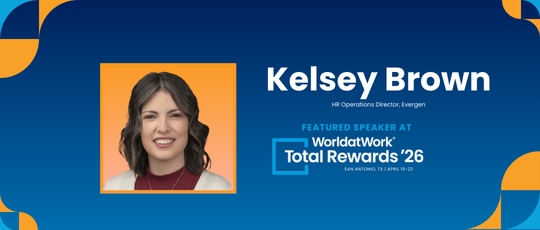- DEI facing pushback. The Supreme Court's ruling against affirmative action does not directly affect businesses but many are choosing to examine their diversity, equity and inclusion (DEI) programs to ensure they are effective and to protect against legal action.
- Popular among younger workforce. DEI programs are important to job-seekers, particularly Gen Z employees and Millennials, as well as certain investors.
- Build a business case. Present a business case for your organization’s DEI initiatives by showing how a diverse and fulfilled workforce translates to better results — but keep in mind that some DEI results are long-term and difficult to quantify.
- Utilize outside help. Collaborate with DEI-trained consultants and counsel to review your business's programs, and ensure the review and all communications are privileged.
Diversity, equity and inclusion (DEI) initiatives at companies are a priority among job seekers, with 63% of respondents across generations in a recent Ernst & Young (EY) survey preferring companies that prioritize DEI.
Younger workers place an even higher priority on the initiatives — 73% of Gen Z respondents and 68% of Millennials.
What's more, many employees feel there is still work to be done with DEI initiatives; 75% of respondents said they have felt excluded at work, and 56% feel they can't share their full identity at work. That number was higher, at 77%, among respondents identifying as LGBTQ+.
Employees' desire for actively inclusive workplaces — and some investors' interest in supporting businesses meeting environmental, social and governance (ESG) benchmarks, under which DEI falls — are locking horns with employers' recent concerns that those same initiatives could land them into legal trouble.
The Supreme Court's June ruling against affirmative action has prompted questions regarding whether similar action will be taken against employers. Those questions follow a recent waning in investor support for ESG initiatives.
Moving forward, employers prioritizing DEI should balance legal protections with strong practices that go beyond lip service — while clearly communicating the value of those practices, said Stephen Paskoff, president and CEO of Employment Learning Innovations Inc.
Paskoff, a former Equal Employment Opportunity Commission litigator, said many successful organizations he has worked with see DEI as a strength.
“They all have commitments to getting the best business results, doing things that are innovative and special, and that links to getting the best talent, being diverse and inclusive,” he said. “Businesses are doing that as much for themselves as for everyone else. This is an organizational necessity, not an organizational nicety.”
Making a Business Case for DEI
Despite concerns about investor or legal backlash, Paskoff urged businesses to consider and communicate the value of DEI by detailing the impact of a diverse and fulfilled workforce on the company's output.
“It's critical for DEI to be understood as benefiting everyone by explaining how having the best talent will enhance safety, quality, client satisfaction, innovation and overall results,” Paskoff said. “It's critical for everyone to see that DEI benefits them and is not just something for others.”
Although data may be leveraged to convey the effectiveness of certain DEI initiatives, other effects of those practices may not be as measurable, cautioned Alyesha Asghar, shareholder and co-chair, EEO & Diversity Practice Group with Littler.
“It behooves employers to engage in DEI initiatives that are demonstrably working,” she said. “That being said, some DEI initiatives may well have more ephemeral payouts that are not quantifiable. Data and analytics are actually not ideal in the DEI world, because the payout for a DEI initiative may not be in the short term.”
Steps for Employers to Take
It may take years to fully understand how the Supreme Court's recent ruling, and shifting views regarding DEI, will legally affect companies. The ruling, despite the questions it has raised, currently does not directly affect businesses.
In the meantime, now is a good time for businesses to examine their DEI programs. They should make sure to do so with not only consultants but also attorneys with an expertise in DEI and employment law.
“They need to be careful about not allowing public sentiment, whether that's the younger workforce or investors, to push them one way or another as they conduct this objective risk analysis under privilege — I can't underscore 'under privilege' enough — to make informed decisions about how much risk they are willing to take in light of the changing legal environment,” Asghar said. “This area of the law is absolutely changing under our feet on a daily, sometimes hourly basis.”
She noted that decisions regarding moving forward with certain DEI initiatives will vary from business to business.
“Some employers are very conservative, others are very progressive, and some are middle-of-the-road,” she said. “They should make a decision where they feel comfortable and authentic walking as an employer.”
Choosing to move away from DEI initiatives because of a fear of lawsuits may actually create greater problems for companies, Paskoff said.
“The reality is, if you don't have the best talent, if you have dysfunctional teams, and people don't speak up or don't feel listened to, that can yield results at least as catastrophic as a major lawsuit,” Paskoff said. “That's why you have to balance operational and legal issues. Find ways you can manage and reduce legal risks that give you greater latitude in talent, management, acquisition, retention and promotion.”
Editor’s Note: Additional Content
For more information and resources related to this article see the pages below, which offer quick access to all WorldatWork content on these topics:





